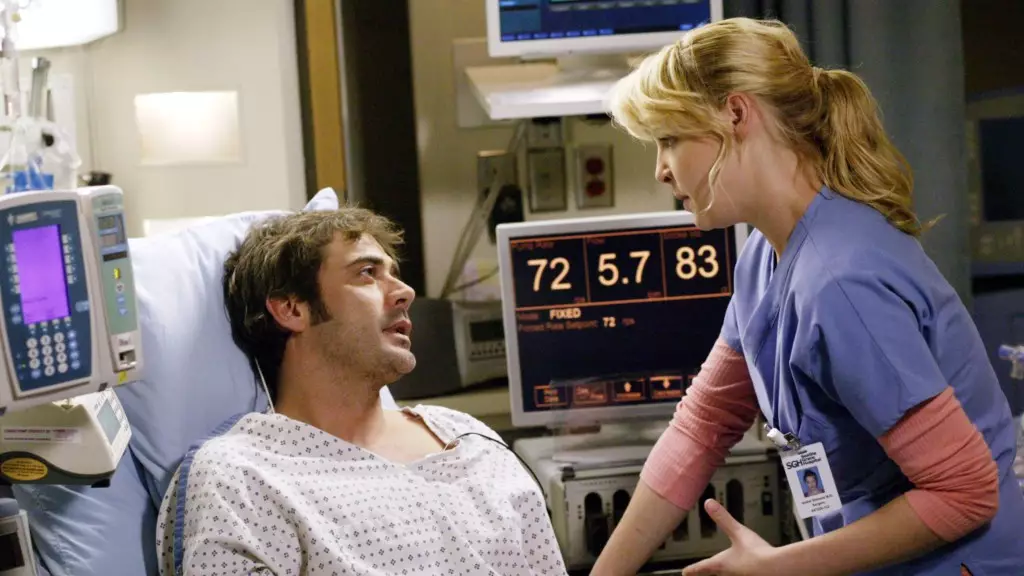After two decades of captivating audiences, *Grey’s Anatomy* has etched a permanent mark in television history. The ABC medical drama, created by Shonda Rhimes, has delivered a staggering array of poignant, comedic, and undeniably outrageous moments that have kept viewers on the edge of their seats. Yet, within its layers of narratives and character arcs lies a persistent issue: the balance between personal revelations and the public spotlight. Katherine Heigl, an original cast member, recently addressed this conflict in a candid statement about her experience on the series, particularly one memorable scene that continues to haunt her.
The Embarrassment of Nostalgia
In an interview with *Entertainment Weekly*, Heigl revealed her hesitance to view the series with her children, citing the infamous “ghostly sex scene” with Jeffrey Dean Morgan as a principal reason. This scene not only serves as a cringe-worthy marker of a bygone era of television storytelling but also represents a broader discomfort many actors face: the challenge of reconciling personal development with past roles. “How do I explain that?” Heigl’s reflection raises essential questions about the impact of adult themes in family viewing. Are these scenes needed for artistic expression, or do they detract from the overall narrative when revisited in later years?
The Complexity of Character Relationships
Much like real-life relationships, the connections on *Grey’s Anatomy* are frequently convoluted. Heigl’s character, Izzie Stevens, finds herself entwined with Denny Duquette, portrayed by Morgan, in an emotional arc that transcends even death. The show’s exploration of love and loss resonates with viewers, yet as Morgan noted, the execution of certain moments raised eyebrows among the cast and production team. His statement regarding the lack of belief in the effectiveness of his character’s posthumous appearances invites discourse about the inherent risks of narrative creativity. How far can a storyline stretch before it becomes too implausible for its audience?
The Awkwardness of Iconic Scenes
As depicted in Heigl’s comments, the filming of key moments can often devolve into uncomfortable situations. The chaotic nature of the scene she described, featuring Justin Chambers as Alex and her character entangled in a compromising position while Morgan’s character lingered as a ghostly presence, presents a striking contrast to the emotional depth intended by the writers. Heigl’s confession emphasizes a universal truth within the entertainment industry: behind every memorable scene lies a myriad of emotions—awkwardness, embarrassment, and even confusion on set.
Legacy Beyond the Screen
While *Grey’s Anatomy* continues to thrive, its legacy isn’t solely measured by ratings or accolades. The conversations ignited by moments like the one Heigl describes reflect a stage where families engage with content in complex ways. Shows like this challenge societal norms and invite scrutiny into personal narratives. As Heigl pointed out, there might always be some amusing—yet troubling—ammunition for children to leverage against their parents. The journey through *Grey’s Anatomy* remains a microcosm of the evolving landscape of television, where personal stories intermingle with professional challenges, creating a tapestry rich with both triumph and vulnerability.
Ultimately, in the realm of television, the pressure between past choices and present realities becomes a delicate dance, with actors often finding themselves navigating the fine line between nostalgia and regret.

